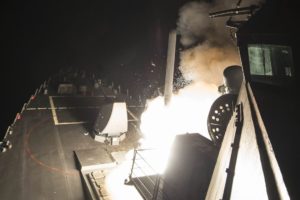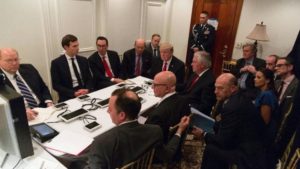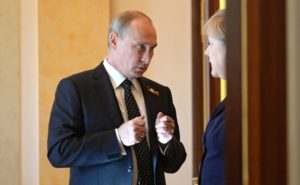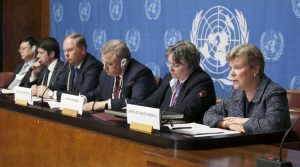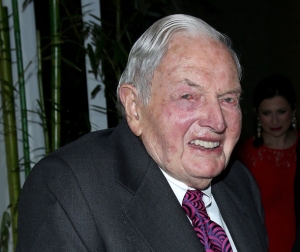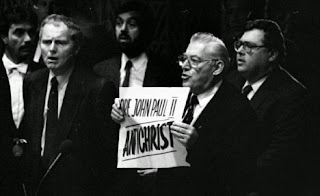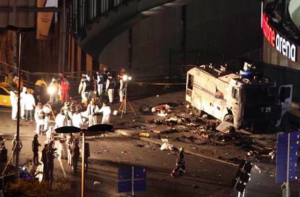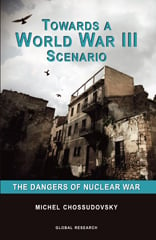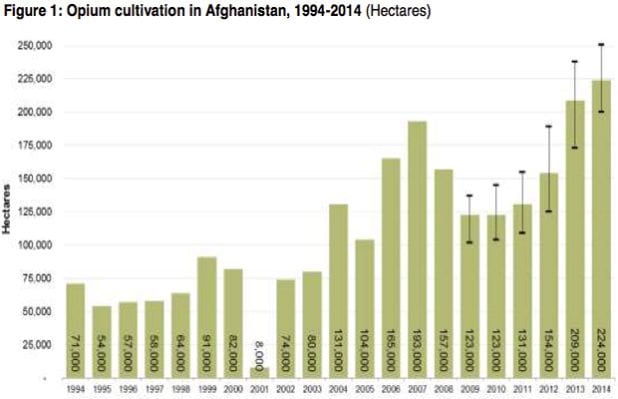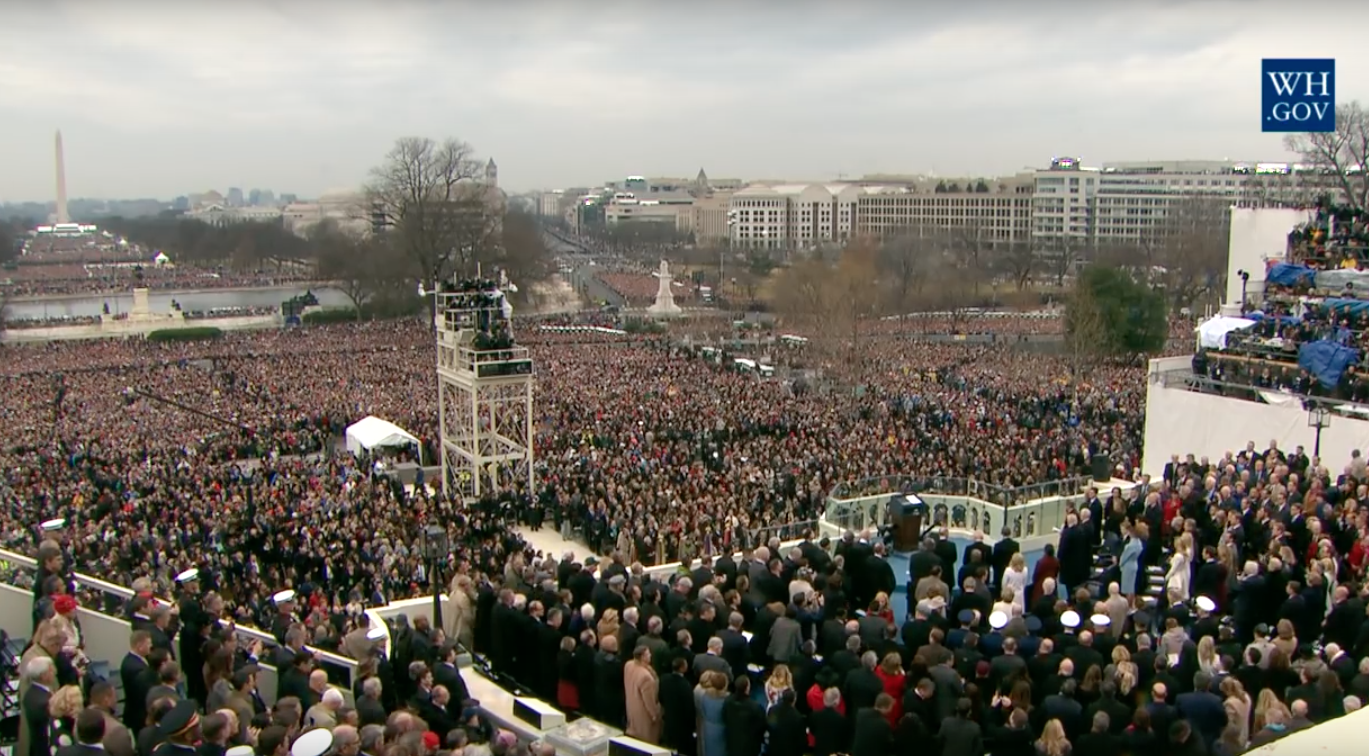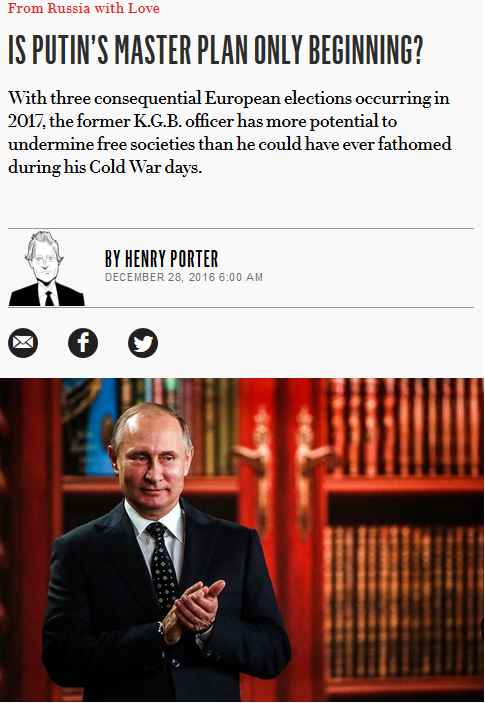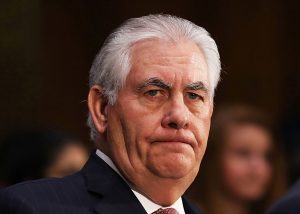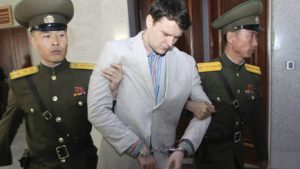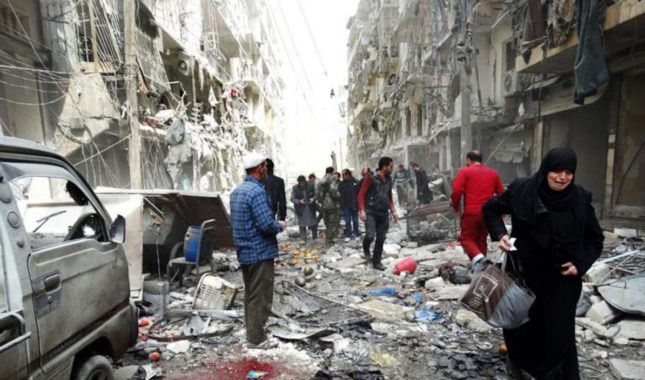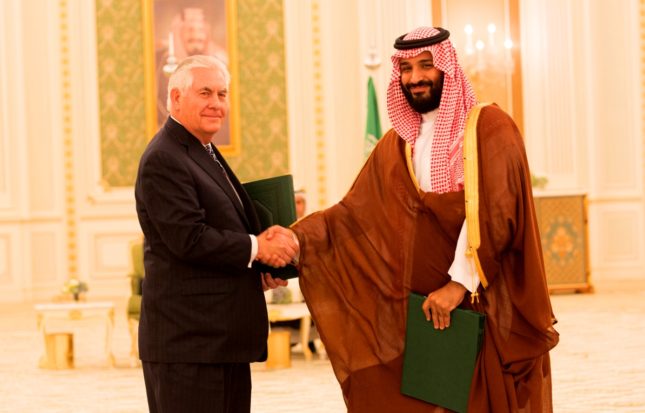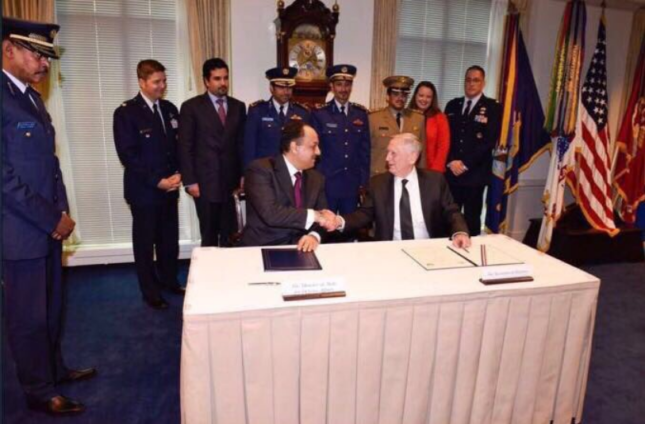As eleições presidenciais no Equador, vencidas no segundo turno pelo candidato governista Lenín Moreno sobre o banqueiro Guillermo Lasso, com pequena margem de votos, foram sem dúvida as mais acirradas da história do país andino e de suma importância para a América Latina, dado o atual momento histórico da região mais rica em biodiversidade do planeta, e um dos maiores campos petrolíferos do globo.
Com uma agenda extremamente neoliberal, prometendo abrir completamente a economia equatoriana ao capital estrangeiro, Lasso do movimento CREO – SUMA desde o início da campanha, antes do primeiro turno afirmava que não aceitaria uma vitória de Moreno, de Aliança País, escolhido pelo presidente Rafael Correa: qualquer resultado contrário, seria alegado fraude por parte do candidato não apenas revelado por WikiLeaks como favorito de Washington, mas também que, fato descoberto entre o primeiro e o segundo turno, possui ações em ao menos 49 empresas em paraísos fiscais, e simplesmente comprou o instituto de pesquisas Cedatos, a fim de divulgar preferência de votos da sociedade equatoriana a seu favor antes do primeiro turno, o que acabou comprovado documentalmente.
Desde que o Conselho Nacional Eleitoral equatoriano anunciou a vitória de Moreno na noite de 2 de abril, o país andino vive sob focos de ebulição: Lasso incita frequentemente seus seguidores a extravasar a raiva nas ruas, o que tem gerado violência. “São maus perdedores”, afirma o presidente de saída, Rafael Correa, há dez anos no poder desde que prometeu implantar a Revolução Cidadã, projeto de cunho socialista autêntico que prevê a preservação ambiental através dos direitos da natureza, em oposição à mercantilização dos recursos naturais como uma de suas prioridades através da política denominada Bem Viver.
Um dos formuladores desta revolução é o renomado economista, professor universitário e político Alberto Acosta, presidente da Assembleia Nacional Constituinte de Montecristi (2007-2008) e Ministro de Energia e Minas (2007), quem logo rompeu com o governo para se tornar incisivo opositor em favor dos movimentos sociais, especialmente indígenas.
Candidato à Presidência equatoriana em 2013 pela Coordenadora Plurinacional das Esquerdas (coalizão de partidos progressistas e de movimentos sociais) e professor da Flacso, uma das mais importantes faculdades latino-americanas de Ciências Sociais, Acosta fala sobre as eleições equatorianas, comenta de maneira altamente crítica os dez anos do governo Correa, segundo ele engodo propagandista que se configura a outra face de uma mesma moeda neoliberal no país andino, e traça perspectivas e soluções para que a Revolução Cidadã volte às origens.
Acosta expõe abertamente repressão a movimentos sociais e povos originários, corrupção governamental, uso indevido da mídia, concentração de poder e forte personalismo por parte de Correa, e políticas que favorecem as grandes empresas, especialmente as multinacionais, com ênfase nas chinesas que fazem com que, segundo ele, a China exerça hoje em seu país imperialismo ainda mais nocivo que o norte-americano.
A seguir, a longa e reveladora entrevista com Alberto Acosta, trazendo fatos ocultados pelos mais diversos setores midiáticos, mas que sem dúvida refletem a reclamação das minorias e da própria natureza que o atual governo tanto diz defender.
Edu Montesanti: Qual sua análise do desempenho dos principais meios de comunicação do Equador nas eleições presidenciais deste ano?
Alberto Acosta: Todos os meios de comunicação, privados e governamentais, embarcaram em um processo eleitoral em que muito poucas questões substantivas foram discutidas.
Entre outras razões, isso explica a enorme apatia que reinou na campanha eleitoral, especialmente no primeiro turno.
A informação difundida pelos partidários do Movimento Aliança País é que grande parte da mídia equatoriana está em mãos privadas, as quais se opõem fortemente ao governo, estando a menor parte delas em mãos públicas ou estatais. Também é dito que há grande participação dos cidadãos na mídia pública. Isso tudo condiz com a realidade?
Isso é falso. Embora ainda haja grandes meios de comunicação privados no país, em termos de conglomerados de mídia quem ganha o jogo hoje é o governo. Nunca antes na história do Equador existiu um grupo oligopólico neste campo tão forte e com tanta cobertura, ainda que em enorme medida com um medíocre nível jornalístico.
Além disso, neste país o termo “meios públicos de comunicação” é uma falácia: não há mídia pública, que seja controlada pela sociedade. Tais meios de comunicação são, na verdade, controlados pelo partido do governo. Chegamos ao extremo de que até os noticiários transmitidos nesses meios de comunicação empenharam-se mais na campanha pelo candidato do partido no poder e contra o candidato da oposição, que em informar sobre os acontecimentos do país.
Poderíamos citar aqui, por exemplo, a escassa ou nenhuma informação divulgada na mídia sobre a onda de acusações de corrupção que sufocam a correísmo, incluindo os casos da Odebrecht e da Petrobras. Lembre-se que o presidente Correa expulsou a Odebrecht em 2008, como empresa “corrupta e corruptora”, mas alguns anos mais tarde, depois de uma reunião com o presidente Lula, a recebeu novamente entregando-lhe contratos multimilionários de licitação.
Simultaneamente, os dois líderes também concordaram, naquela reunião, com a saída protegida da Petrobras, empresa envolvida em várias transações fraudulentas no Equador que representam várias centenas de milhões, ou talvez bilhões de dólares de perda para este pequeno país andino.
E, finalmente, no Equador até agora não se conhece os nomes dos funcionários atuais e de outros governos que receberam subornos da Odebrecht, algo que já se tornou público em quase todos os países.
Como chegamos a este ponto? Pois o Estado assumiu e adquiriu, de várias maneiras, uma série de meios de comunicação que se mostraram úteis ao correísmo a fim de transmitir ao público a imagem de um Equador “que já mudou” ou que “o país já é de todos”.
Basta mencionar que o Estado possui 11 meios audiovisuais, incluindo seis canais de TV, o que contrasta com o ano de 2007, quando o Estado só tinha uma rádio. E continua expandindo sua esfera de influência, direta e indireta, através de um hostil sistema de radiofrequências, que ameaça o fechamento de vários meios contrários ao regime.
Como resultado disso tudo, o correísmo impõe uma imagem de “esquerda” em grande parte do imaginário coletivo, especialmente nos estratos populares. Assim, tanto a imagem do líder “revolucionário” como um governo de “esquerda” são, basicamente, apenas uma construção midiática.
Construção fundamentada em várias frentes, incluindo: aumento do consumismo exacerbado graças às enormes receitas do petróleo; oportunismo disfarçado de “devoção” por parte de vários funcionários do poder; o uso da propaganda onde o “culto da personalidade” de Correa tornou-se diário; a divulgação internacional de falsas mensagens tal como essa bobagem de “milagre equatoriano”, poucos meses antes do estouro da crise no país; o uso de centenas de pessoas responsáveis por perseguir adversários em redes sociais; e até mesmo o fechamento ou bloqueio de páginas da web com conteúdo incriminador contra o correísmo.
Esse conjunto de medidas permitiu ao correísmo esvaziar o conteúdo e deslegitimar o discurso de grupos realmente de esquerda e populares, e até mesmo persegui-los permanentemente. Adjetivos como esquerdistas, indígenas ou ambientalistas “infantis”, “esquerda tola”, e outros emitidos por Correa tornaram-se diários e ampliados pelos meios de comunicação nas mãos do correísmo.
E, por outro lado, esta máquina poderosa de mídia é usada para vampirizar conceitos revolucionários, tal como o Bem Viver, transformados em um dispositivo para disciplinar a sociedade e aumentar o poder do presidente.
É verdade que existem grandes grupos de mídia privados ligadas ao poder, mas todos esses meios incluindo os pequenos estão atemorizados por um marco jurídico repressivo nestes anos de correísmo. Assim, enquanto o número de meios controlados pelo Estado tem aumentado, da mesma maneira tem crescido o controle e o fechamento violento de meios não-estatais, particularmente mídia comunitária.
A Superintendência de Comunicação (Supercom) desempenha o papel do “Ministério da Verdade”, como narrou George Orwell em seu romance “1984”. Através da correísmo, a Supercom impõe sanções excessivas: de 2013 a 2016, foram abertos mais de 600 julgamentos de jornalistas e meios com 462 sancionados, dos quais mais de 97% são penalidades contra meios privados. Tem ainda os cartunistas perseguidos, como acontece na Turquia Erdogan.
Assim, a disputa eleitoral evidenciou um cenário que, raramente, é reconhecido explicitamente pela esquerda: não testemunhamos a luta entre os meios que representam os interesses dos grandes grupos econômicos, e os meios de comunicação que representam o povo. Não. Apenas a luta midiática de distintas facções das próprias classes dominantes. No meio dessa luta, as classes subordinadas são meras espectadoras…
Quanto a mídia tem influenciado a atual polarização, ódio e violência entre os setores políticos e entre setores da própria sociedade equatoriana? E como normalizar essa situação?
Na medida em que os meios, tanto privados quanto governistas, evitaram questões substantivas, facilitou-se uma campanha dominada por ataques pessoais e desinformação, especialmente no segundo turno. Nunca esteve na agenda discutir realmente a crise, a partir de múltiplas abordagens, mas tudo o que importava era apostar em um cavalo para vencer em meio a uma corrida caótica que parece levar a um colapso.
Do lado do governo tentou-se, sistematicamente, levar a discussão para questões que ultrapassaram os problemas atuais. Seu candidato, Lenín Moreno, esquivou-se dos debates. E com “boa razão”, pois era notória a falta de preparação do candidato.
Neste contexto, os meios de comunicação do governo desferiram uma grande quantidade de ataques frontais contra os candidatos da oposição, usando e abusando da manipulação da informação.
Também deve-se notar que a ação midiática do governo, em todos estes anos, tem sido caracterizada pela intolerância e violência verbal; basta apenas ouvir as “sabatinas” presidenciais. Para piorar a situação, nos últimos anos nem sequer se viu um Correa enfrentando os grandes grupos de poder econômico, que lucram com o correísmo incluindo os grandes bancos, mas temos visto Correa exercendo a violência verbal contra o próprio esquerda que lhe deu a oportunidade de ser presidente.
Desta maneira, vemos que foi o próprio correísmo quem aumentou ,os ventos extremos que causam violência na sociedade, por si mesma violenta por causa da exploração impiedosa dos trabalhadores e dos setores populares em geral, e da natureza .
Neste ponto pode-se destacar que, longe das propostas democratizantes da Constituição de Montecristi de 2008, o correísmo recorreu à criminalização, à repressão e à perseguição de líderes populares, especialmente aqueles que defendem os direitos humanos e a natureza. Inclusive as proporções parecem ser mais elevadas que as da “noite neoliberal”: mais de 800 pessoas foram duramente reprimidas em 90 casos de criminalização dos protestos sociais entre 2007 e 2017, dos quais cerca de 20 casos possuem aspecto de “terrorismo”, inexistente no país.
No lado da mídia privada, tampouco houve uma tentativa de aprofundar o debate. E as poucas vezes que tais meios abordaram questões cruciais como a crise econômica, cada vez ganha mais força o discurso neoliberal da “velha escola”, que ganhou força devido à falha gestão econômica do correísmo.
Além disso, como os meios de comunicação estão aterrorizados e enfrentam claramente a censura, nem se atreveram a ser atores de primeira linha na implantação de uma oposição frontal ao candidato do governo. E por buscar o equilíbrio informativo nos meios privados, algo que os meios do governo não tentaram absolutamente nada, não se obteve o equilíbrio em termos globais no campo da comunicação durante o processo eleitoral, e muito menos abriu as portas para um debate democrático sério.
Portanto, ressalto que, o Equador vive hoje uma polarização acentuada entre as diferentes facções das classes dominantes: a velha direita neoliberal, e uma nova direita correísta.
Talvez a melhor maneira de responder a uma situação tão polarizada, e até mesmo reconstruir um novo tecido social mais justo e equitativo diante dos estragos que virão, quando qualquer uma dessas duas direitas apliquem seu programa de ajuste diante da crise, é esclarecer ao público que nenhum dos dois caminhos indicam a saída.
Você tem que pensar em uma terceira opção que realmente sincronize, de baixo para cima e à esquerda, em defesa dos interesses populares. Com isso, tentar desarmar tanto o correísmo quanto a reanimada direita é uma tarefa urgente.
Há os que defendem a ideia de que algumas medidas mais duras medidas por parte de determinados governos são necessárias, no atual contexto local e regional de sabotagem contra governos progressistas, de tentativas de golpes e de assassinatos sob influência externa. O Equador, particularmente, está constantemente na mira do governo e das elites dos Estados Unidos, e o presidente Correa mesmo foi vítima, em 2010, de uma tentativa de magnicídio. O senhor acredita que esses fatos possam justificam uma postura, em determinadas ocasiões. mais severa por parte do governo equatoriano? Ou se o senhor não concorda com tais medidas, seria essa defesa, uma prevenção que estaria na mente do presidente Rafael Correa e dos seus apoiantes?
Para começar, a democracia se defende sempre com mais democracia. E um processo revolucionário se defende aprofundando a revolução. De maneira nenhuma podem ser justificadas medidas repressivas contra os setores populares, como no Equador do presidente Correa.
Neste pequeno país andino, onde através de um mandato constitucional está garantido o direito à resistência, no artigo 98 da Constituição de 2008, mais de oitocentas pessoas têm sido perseguidas e criminalizadas, muitos delas estão inclusive presas.
Sobre os acontecimentos deploráveis de 30 de setembro de 2010, ainda há muito o que ser discutido, e afirmar que “foi uma tentativa de assassinato” ainda merece maior análise sem negar que, no final daquele violento dia, atiraram contra o veículo presidencial.
Falta a transparência necessária para esclarecer um ato repreensível, que matou várias pessoas havendo briga na frente de um hospital. No entanto, o que está claro é que não houve um golpe de Estado, não houve ações no sentido de se mudar governo. Em vez disso, o que podemos dizer é que, naquele dia, houve um golpe ao Estado constitucional de direito.
O Estado, através da insurreição policial e militar que reivindicava uma série de reclamações salariais, entrou em greve. O presidente, humilhado e em situação de extrema vulnerabilidade, foi mantido como refém em uma delegacia de Polícia, privado de suas funções.
Quanto a isso, não há nenhuma dúvida de que foi imprudente e desnecessária a presença do presidente na delegacia, o que colocou em risco as instituições do país diante de um problema que poderia ser resolvido através do diálogo.
Mas foi precisamente esse um dos maiores fracassos correísmo: querer resolver tudo pela força. Ou que, ao menos, essa força fosse utilizada contra os grandes grupos de poder, mas não: é usada dependendo dos caprichos do caudilho, especialmente contra grupos populares e movimentos sociais.
Foram tão desmedidas as ações da polícia naquele dia, que até as atividades públicas e privadas foram interrompidas de forma violenta. A cidadania ficou indefesa. A cúpula do governo não respondeu adequadamente. A incapacidade da Assembleia Nacional foi evidente. Até a escassa mobilização de Aliança País para apoiar o presidente nas ruas, apesar de ser a principal força eleitoral, apresentou limitações como força política organizada.
E para fechar tal cenário de caos desnecessário, as Forças Armadas foram transformadas novamente em “fiadores” da democracia, uma instituição conscientemente abolida na Constituição de Montecristi.
Infelizmente, desde aquela data, em vez de radicalizar a democracia e a revolução, o governo do presidente Correa acelerou a transição para um regime caudilho autoritário, aprofundando o extrativismo e, pouco depois, retornando às práticas neoliberais.
E, com certeza, isso de que “o Equador está constantemente na mira dos Estados Unidos” me parece um exagero. Não acredito que este pequeno país andino gere maiores preocupações no Império cujo governo, justamente o de Donald Trump, foi um dos primeiros a reconhecer Lenín Moreno como futuro presidente do Equador, embora nem sequer ainda tivessem sido proclamados oficialmente os resultados . Acredito que a atenção esteja, por enquanto, em outras partes da região, como na Venezuela.
Conclusivamente, qualquer processo revolucionário que precise exercer violência contra o próprio povo, no fundo não é revolucionário. Talvez seja necessária uma ação firme e forte contra grandes grupos de poder, mas nunca contra as camadas populares e, menos ainda, contra as forças sociais que carregam os gérmens de profunda mudança, como é o caso de muitas das organizações dos povos indígenas, de trabalhadores, mulheres, ambientalistas, professores, alunos…
Revolução implica a transformação radical das estruturas sociais que limitam a vida das pessoas, é um processo de libertação, não o contrário.
Se o correísmo precisou de violência para impor seu projeto político, para deslocar populações inteiras a fim de promover extrativismo como a megamineração, para silenciar a oposição em relação à criminalização da luta social com tentativas de destruir movimentos sociais, nada disso se deve à necessidade de defender o projeto político.
O correísmo tornou-se um processo contra-revolucionário modernização do capitalismo, com um objetivo claro: reconstruir a hegemonia das classes dominantes, e silenciar o ímpeto de luta de uma sociedade que vinha derrubando presidentes em série e, se seguisse assim, talvez fosse até contra o próprio sistema capitalista.
A oposição tem denunciado fraude, sem apresentar provas tanto no primeiro quanto no segundo turno. Antes do primeiro turno, o candidato Guillermo Lasso havia dito que se perdesse não aceita os resultados. Já é habitual à direita regional não aceitar resultados, o Estado de direito se ela perde eleições. Qual sua análise disso, por que isso acontece, que “fenômeno” é este na região, professor Acosta?
Primeiro, quero ressaltar: aqui não há uma direita, mas duas. O correísmo não é de “esquerda”. A verdadeira esquerda é democrática, e o correísmo não é. Não é nem mesmo em termos eleitorais, pois a lista de violações aos padrões estabelecidos são enormes: atrasos na apresentação de resultados eleitorais, mesmo quando foram oferecidos em questão de horas; “Falhas técnicas” nos sistemas de contagem tanto no primeiro como no segundo turno; cédulas eleitorais inconsistentes; pesquisas que apontavam o vencedor o candidato governista horas antes do final das eleições, incluindo uma pesquisa falsa forjando o logotipo de uma universidade norte-americana, distribuído por um funcionário do governo; contagens rápidas como a da Escola Politécnica Nacional, que serviu apenas para confundir a população já que nem sequer divulgaram a informação primária; ameaças a organizações da sociedade civil, como a Participação Cidadã; ataques a um pesquisador não relacionado com o correísmo; etc.
Sem a pretensão de afirmar que houve fraude no domingo, 2 de abril, dia do segundo turno, a verdade é que no Equador um sistema eleitoral fraudulento funciona e que, com tantos problemas, não inspira nenhuma confiança. Para começar, o Conselho Nacional Eleitoral (CNE) e o Tribunal Eleitoral estão inteiramente nas mãos do partido no poder: são compostos por pessoas próximas ao governo do presidente Correa, ou que inclusive tenham sido funcionárias do seu governo.
Desta maneira, o correismo é responsável pelos abusos acima mencionados. E depois, como nos processos anteriores, por exemplo em 2013, a oposição teve que jogar em um campo que se inclinava a favor do candidato do governo, Lenín Moreno.
O que aconteceu no domingo 2 de abril pode ter sido apenas mais um passo longo a ser dado a fim de se restringir as áreas de transparência e do controle cidadão das eleições.
Às cinco da tarde daquele dia, quatro pesquisas publicaram os resultados sobre pesquisas de boca de urna, sendo que três deram vitória ao candidato da oposição, Guillermo Lasso. Entre as cinco e oito horas da noite, o sítio oficial da CNE não operou normalmente, mas esteve fora do ar. Às oito horas, o sítio voltou ao ar, e com os resultados que deram Lenín Moreno como vencedor.
A reação a essa diferença entre os resultados de boca de urna e os da CNE, além das irregularidades no processo eleitoral, causou mal-estar no público e provocou vários protestos.
É compreensível, então, que a falta de confiança no CNE tenha feito com que os resultados eleitorais tenham que ser legitimados a partir da pressão cidadã nas ruas. Esta ação, plenamente justificada, é contudo inaceitável em uma república que se gabe de sê-la. É mais uma prova da profunda crise do sistema político promovida pelo correísmo.
Portanto, somente com pressão social conseguiu-se que o próprio partido do governo aceitasse a recontagem dos votos, requerida pela oposição. O candidato da oposição, por sua vez, continua exigindo a recontagem total e manual de todos os votos. Esta questão ainda provoca disputas profundas.
E apenas para deixar no ar a dúvida: se em vez de deixar que os problemas eleitorais tivesses se agravado, o próprio Conselho Nacional Eleitoral tivesse disposto a recontagem de todos os votos desde o início, talvez a esta altura a recontagem já estivesse concluída e o CNE tivesse retornado a confiança popular no processo eleitoral.
O saldo, de qualquer forma, é lamentável para a democracia. E o possível governo de Moreno terá de suportar uma carga enorme de ilegitimidade pela dúvida de que seu triunfo tenha sido produto de fraude, ao menos segundo a visão de grandes segmentos da população.
Quais pontos políticos, incluindo a externa, econômicos e sociais deveriam ter sido colocados em questão, e discutidos na última campanha presidencial a seu ver, professor Acosta?
Conforme observado anteriormente, na última campanha presidencial houve muito pouca discussão sobre questões substantivas. Uma das primeiras questões a serem discutidas é a situação económica e, de fato, a necessidade de construir instituições democráticas, que começa no estabelecimento da base de igualdade e equidade em todas as esferas da vida da sociedade equatoriana, junto com a expansão de liberdades em todos os sentidos. Sem igualdade e sem igualdade, não há liberdade; mas sem liberdade tampouco haverá a igualdade nem equidade.
Para completar o quadro, podem ser brevemente mencionados alguns pontos urgentes.
Em termos econômicos: como recuperar os postos de trabalho destruídos entre 2015-2016; como conter a queda da renda do trabalho nos anos mencionados, especialmente dos trabalhadores informais; quais são atividades económicas requerem uma ação urgente; como reduzir a dependência das importações de insumos produtivos e bens de capital, que pressionam a saída maciça de dólares do país; como lidar com as distorções causadas pela expansão do extrativismo na economia do país; como superaremos o método agrário-exportador de acumulação; como tornaremos as estatísticas económicas transparentes; como sustentaremos o emprego; como desconcentraremos os grandes grupos econômicos manipulados pelos mercados; como podemos fazer como que os grandes e não pequeno, paguem pela crise; e muitos outros aspectos que, de fato, alguns já discutimos há algum tempo. Um exemplo é a reflexão que estamos fazendo em conjunto com o economista equatoriano John Cajas Guijarro, sobre o legado econômico do correísmo.
Em termos políticos: como podemos garantir a independência das várias funções do Estado, especialmente à justiça, mas sem cair na velha armadilha da direita; como enfrentaremos os graves casos de corrupção que se abateram sobre o correísmo, especialmente nos últimos anos; como reconstruiremos os movimentos sociais, tão abalados pelo correísmo, sob sério risco de perder a identidade; como devolveremos a legitimidade do discurso de esquerda para grandes segmentos da população que estão desiludidos, se não mesmo enraivecidas pelas ações do correísmo; como desmontar todo o aparato repressivo construído legalmente pelo Estado…
Em termos de condução externa: como vamos fazer o mundo enxergar o verdadeiro Equador, não aquele que vende “Revolução Cidadã” as mas o país cujo salário mínimo é dos que menos garantem a cesta básica a nível regional; como criar uma nova opção regional de esquerda após toda a confusão feita pelos “progressistas”; como direcionaremos os processos de reintegração; como controlaremos o ressurgimento da dívida externa regional (inclusive do próprio imperialismo chinês)…
Ou seja, sobram problemas. O que falta é vontade e sujeito político para resolver esses problemas.
Retornando ao tema da eficiência do sistema eleitoral equatoriana, professor Acosta, a organização Missões de Observadores Internacionais e a Missão da União das Nações Sul-Americanas (Unasul), entre outros observadores internacionais, disseram que as eleições no Equador deste ano foram altamente democráticas e realizadas com toda a segurança. “Um processo eleitoral sob coordenação exemplar”, afirmou o chefe da missão da Unasul e ex-presidente do Uruguai, José “Pepe” Mujica. A missão da OEA ressaltou que não observou nenhuma discrepância entre os resultados da CNE e as cédulas eleitorais que receberam em suas observações. Qual sua análise dessas conclusões?
Tenho muito respeito pelo presidente Mujica. Admiro muitos suas realizações, como o de não se agarrar ao poder como fazem outros líderes na região.
Mas daí a aceitar como verdade revelada suas declarações sobre o recente processo eleitoral equatoriano, há um abismo.
Duzentos observadores espalhados pelo país chegaram a apenas alguns dias antes das eleições, o que não é suficiente. Além disso, o trabalho foi muito superficial, quase turístico… Teria sido interessante, por exemplo, que uma auditoria internacional do sistema informativo utilizado, que autorize inclusive a presença de uma comissão de verificação da União Europeia, cuja chegada não foi aceita pelo Conselho Eleitoral Nacional, inteiramente nas mãos do correísmo.
Comprovou-se que o candidato Lasso comprou um instituto de pesquisas antes da realização do primeiro turno, a Cedatos. Além disso, o governo tem argumentado que, se tivesse havido fraude sob sua influência sobre os resultados, não teria havido um segundo turno já que Moreno deixou de vencer no primeiro turno por apenas 0,7%. E, mais tarde, uma fraude pró-governismo não teria permitido, no segundo turno, outra vitória por margem tão curta de votos. Como o senhor responde a esses fatos, professor Acosta?
Não ouvi isso, de compra da Cedatos pelo candidato banqueiro. E se acusamos disso a alguns, porque não acusarmos também de “compra” pelos pesquisadores do correísmo? Voltamos ao mesmo ponto: dois grupos que lutam para tomar o poder, subtraindo às vezes o pior de si mesmo, e a população no meio disso, vivemos uma crise…
A verdade é que os pesquisadores vendem seu trabalho para vários candidatos, incluindo para o governo, e os resultados são usados com ferramenta política de propaganda e de distração.
Isso não é novidade. A novidade, e extremamente questionável, é que feito o a acusaão ao mencionado instituto. Existe alguma acusação para os pesquisadores que apontaram Lenín Moreno como vencedor no primeiro turno com margens de votos completamente fora de qualquer erro estatisticamente aceitável? Duvido.
Se é questionável qualquer conspiração entre o candidato banqueiro, um instituto de pesquisa e alguns meios de comunicação privados na divulgação dos resultados no dia do segundo turno, é tão condenável também a ação tomada pelo presidente Correa, que um instituto de pesquisas financiado pelo governo e meios de comunicação do governo proclame o candidato oficial como vencedor no primeiro turno. E no meio, as classes exploradas e subordinados são apenas espectadoras ou bucha de canhão, seja a favor dos interesses de uma direita ou de outra.
O presidente Correa tem denunciado uma nova Operação Condor na região: o senhor está de acordo com isso? E acredita que setores da oposição, especialmente o banqueiro Guillermo Lasso possui ligações com Washington a fim de desempenhar seu papel nessa Operação?
O presidente Correa, em sua estratégia para consolidar o poder, por muitos anos tem recorrido ao “inimigo externo” e em prenunciar campanhas de desestabilização traçadas por várias forças internacionais. Sem negar, absolutamente, a existência de certas forças políticas que não veem com bons olhos governos progressistas, a verdade é que a única coisa que este tipo de denúncias correístas tem conseguido, é desviar a atenção de parte da opinião pública do Equador e do exterior, onde ainda se acredita equivocadamente que Correa lidera um governo de esquerda, e até mesmo socialista. Dentro do Equador, há um problema sério em termos econômicos, políticos e até mesmo institucionais cuja principal responsabilidade não é do lado de fora, é o correísmo.
Internacionalmente, a propaganda correísta também tem sido eficaz: discursos “revolucionários” em vários fóruns internacionais; documentários onde Correa é o protagonista, inclusive com o patrocínio de empresas privadas como a Odebrecht; campanhas multimilionárias em favor da imagem presidencial no exterior; e mesmo acadêmicos internacionais anunciando ao mundo a ideia de “milagre” econômico equatoriano.
Com tanta propaganda interna e externa, o que se busca é a construção de uma imagem de vitórias, que não se sustenta quando a realidade é analisado com cuidado: as falácias surgem de todos os lados da gestão correísta.
A crise em si foi contratado para mostrar as costuras econômicos de um governo que desperdiçou uma oportunidade histórica para mudar o país, e até mesmo feitas de forma responsável uma previsão do que vinha desde 2015.
Na verdade, o presidente Correa foi o grande modernizador do capitalismo, tarefa que assumiu com uma proposta própria de profunda restauração conservadora.
Há muitos anos sabemos que Correa não optaria por nenhuma alternativa, muito menos revoluções, e pior ainda utopias como as ideias propostas do Bem Viver, ou Sumak Kawsay.
Sobre os interesses dos Estados Unidos no Equador, o país andino é muito mais rico em recursos naturais que, por exemplo, o Paraguai, vítima de golpe parlamentar em 2011 sob influência direta de Washington. Temos visto outros golpes semelhantes, apoiados e até mesmo financiados pelos norte-americanos como contra o governo de Honduras em 2009. No caso do Equador, cabos liberados por WikiLeaks revelam interesses do Império no Equador, contrários aos do atual governo, além de estreitas ligações de Guillermo Lasso com o Departamento de Estado e a Embaixada dos Estados Unidos em Quito. Um cabo emitido pela Embaixada dos Estados Unidos no Equador divulgado por WikiLeaks, evidencia “relações estreitas entre Lasso e Viteri com a Embaixada dos Estados Unidos no Equador”. Outros telegramas secretos mostram a mesma Embaixada, de acordo com análise de diplomatas dos EUA, afirmando “como os Estados Unidos perderam Equador”. Em um destes cabos, a Embaixada norte-americana temia que o governo Correa excluísse da tomada de decisões o setor privado, e implementasse políticas econômicas que afetassem negativamente os Estados Unidos e os investidores estrangeiros no Equador.
Qual sua análise desses fatos, professor Acosta?
Desconheço os vínculos mencionados. Mas me lembro que WikiLeaks também mencionou vários funcionários do correísmo como “amigos” da Embaixada dos Estados Unidos.
E sejamos claros em um ponto, o progresso em termos de soberania dos primeiros momentos da “Revolução Cidadã” diluíram-se através do entreguismo do correísmo, especialmente ao capital transnacional: a transferência dos grandes campos petrolíferos Sacha, e Auca à empresa francesa Schlumberger, e as negociações com a empresa chinesa CERG, uma situação que Rafael Correa, em 2005, antes de se tornar presidente, considerava uma traição; a imposição à “ferro e fogo” da megamineração em favor do capital chinês; a concessão dos portos de Posorja, Puerto Bolívar e Manta ao capital estrangeiro, com a cumplicidade de grupos econômicos locais relacionados ao correísmo; a assinatura de um acordo de livre comércio com a União Europeia, entregando pontos-chave soberania econômica equatoriana, tais como a propriedade intelectual; aumento da dívida externa do imperialismo chinês para mais de 8 bilhões; privatizações onde até projetos hidrelétricos podem acabar nas mãos do capital estrangeiro; etc…
Sem ter-nos libertado das pressões imperialistas norte-americanas e europeias, o Equador está cada vez mais nas garras do imperialismo chinês, especialmente através de dívida com este país que já é o principal credor.
Assim, mesmo se fosse verdade o racha com Washington, algo não muito provável, com Pequim o correísmo parece estar vendendo a alma a fim de ganhar mais alguns anos de sobrevida.
Explique o que é o Bem Viver, formulado exatamente pelo senhor logo que se instalou a Revolução Cidadã no Equador.
O Bem Viver sintetiza experiências em vez de conceitos ou teorias. Surge das comunidades indígenas. Inspira-se em seus valores, em suas experiências e, especialmente, nas suas mais diversas práticas.
Não vem de uma universidade nem de um partido político. E à medida em que reflete a continuidade da vida em harmonia dos seres humanos vivendo em comunidade, e desta em harmonia com a natureza há centenas de anos, oferece uma série de lições sobre como se poderia imaginar outros mundos onde caibam todos os mundos, garantindo sempre justiça social e justiça ecológica.
O que podemos considerar a comunidade indígena, em termos gerais, possui um projeto coletivo de futuro com uma clara continuidade desde seu passado. Uma demonstração clara de responsabilidades com a própria vida.
Essas utopias andinas e amazônicas relacionadas a outras formas similares de vida em todo o planeta, de maneiras diferentes refletem-se em seu discurso, em seus projetos políticos e, especialmente, nas práticas sociais e culturais, incluindo a econômica. Aqui reside um dos maiores potenciais do Bem Viver.
A tarefa, então, é compreender as experiências de povos que souberam viver com dignidade e harmonia desde tempos imemoriais; isso sim, sem chegar a idealizar a realidade indígena. Isso não significa que você pode fazer uma cópia dessas propostas em todos os lugares. Um dos maiores desafios será pensar como construir o Bem Viver nas cidades.
Essas visões de mundo, ligadas a territórios específicos representam diferentes opções da visão de mundo ocidental ao surgir de raízes comunitárias não capitalistas, harmonicamente relacionadas com a natureza.
A partir desta leitura, o Bem Viver representa uma transformação de alcance civilizatório ao ser biocêntrico e não antropocêntrico; na verdade, trata-se de uma trama de relações harmoniosas vazias em torno do centro. Comunitária, não só individualista; sustentada pela pluralidade e pela diversidade, não unidimensional nem monocultural. Para compreendê-lo, particularmente faz a precisão de um profundo processo de descolonização política, social, econômica, e certamente cultural.
Um ponto deve ficar claro ao falar do Bem Viver, ou Sumak Kawsay (em quéchua), como se diz no Equador. Ou seja, imaginamos boas convivências ao invés de um único e homogêneo Bem Viver, o qual é impossível se cristalizar.
O Bem Viver, definitivamente, não poderia exigir-se em um mandato global único como aconteceu com o fracassado conceito de “desenvolvimento”, desde meados do século XX.
Estes avanços de conotação revolucionários, feitos na Constituição de 2008 do Equador, resumiram-se simplesmente em uma série de disposições constitucionais. Os direitos da natureza, nunca abordados pelo presidente equatoriano, foram utilizados por ele para angariar aplausos internacionalmente, mas na prática são desrespeitados.
E o Bem Viver, esvaziado do seu conteúdo transformador, tornou-se instrumento de propaganda para consolidar o poder do líder do século XXI: Rafael Correa. Algo semelhante acontece na Bolívia, com Evo Morales.
Então, não se pode cair na “armadilha” da propaganda do Bem Viver dos governos desses países, onde terminou-se de esvaziar seu conteúdo para coloca-lo a serviço dos desejos de se concentrar o poder e disciplinar suas sociedades. O Bem Viver funciona como dispositivo de poder para modernizar o capitalismo, uma verdadeira aberração.
A reforma agrária não foi impulsionada no Equador. Como o senhor vê essa questão, e há perspectiva de avanço?
Correa não aceita a reforma agrária. Não estamos dispostos a cumprir os mandatos da Constituição de 2008 que proíbe a grilagem de terras, e a posse e privatização da água. Ele chegou inclusive a afirmar, em sua busca permanente por competitividade e produtividade do desenvolvimento, que “a pequena propriedade rural vai contra a eficiência da produção e a redução da pobreza […], repartir uma grande propriedade em muitas pequenas, é repartir a pobreza” (1 de outubro de 2011).
Em concordância com essas palavras estão as próprias estatísticas governistas segundo as quais, por exemplo, o Coeficiente de Gini de concentração de terra permanece praticamente intacto ao longo da década correísta: cerca de 0,81. No caso da água, há uma situação igual ou ainda pior, onde 80% da água destinada à irrigação é realizada por exportadores agrícolas, como o próprio correísmo afirmou.
Isso explica seu apoio às grandes monoculturas e ao agronegócio, sem desenvolver nenhuma proposta à recuperação agrícola baseada na soberania alimentar, outra determinação constitucional. Esta política agrícola, que afeta os camponeses, se aprofundará mais ainda através do acordo de comércio assinado por Correa no final de 2016 com a União Europeia, favorecendo apenas os grandes exportadores de matérias-primas agrícolas e da pesca, além de enraizar muito mais o tipo de acumulação agro-exportadora.
A estes fatos vale acrescentar uma crescente deterioração da situação do emprego agrícola: os salários diminuíram sua participação no valor adicionado das atividades primárias, e inclusive os trabalhadores agrícolas permanecem como aqueles que sofrem com os mais altos níveis de exploração do país.
Dado que o Equador tem alcançado maior soberania e destaque na região nos últimos anos, até protagonismo na integração latino-americana ao contrário do período anterior à Revolução Cidadã, qual a importância para a atual conjuntura da América Latina a eleição de Lenín Moreno à presidência do país?
É verdade que no início das etapas de gerenciamento de Correa foram tomadas medidas para recuperar a soberania nacional. Por exemplo, o cumprimento do mandato constitucional que proíbe a presença de tropas estrangeiras em território nacional, expulso da base dos EUA em Manta. Mas isso é estória. Soberania, no momento, é apenas uma parte do discurso oficial.
Correa, em menos de dois anos de administração, abandonou as propostas de mudança estrutural. Como bom economista keynesiano e tecnocrata, com raízes conservadoras profundas ele logo se juntou ao desenvolvimentismo, a eficiência tecnocrática, a provisão de infraestrutura e o aumento do consumo.
E vale observar que, nem sequer em termos tecnocráticos, o correísmo tem sido capaz de satisfazer as próprias propostas, bastando apenas mencionar o retumbante fracasso que significou o cumprimento das metas relativas à “produção matriz de transformação”, incluída como alvo 10 do Plano Nacional do Bem Viver…
Retomando à questão da soberania, o governo correísta acabou assinando o Tratado de Livre-Comércio com a União Europeia, contrário aos seus compromissos iniciais. Tem privatizado, sem concorrência, os grandes campos petrolíferos, bem como os quatro maiores portos do país; anuncia ainda a venda de várias hidrelétricas construídas durante sua administração, pelo Estado.
É o maior promotor de megamineração, especialmente a favor dos capitais chineses. Ele hipotecou as exportações de petróleo que, aliás, têm servido ao enriquecimento ilícito de vários ex-funcionários do regime.
Ele está embarcando em um processo agressivo de endividamento externo. Penhorou mais da metade da reserva de ouro físico, em troca de um empréstimo com Goldman Sachs.
Retornou à gaiola do FMI, e está desenvolvendo várias políticas neoliberais; mais do que o anteriormente enunciado, podemos destacar, por exemplo, a flexibilidade laboral e as limitações na sindicalização pública.
A recuperação do Estado adveio em detrimento do fortalecimento da sociedade, serviu para dar lugar a uma restauração profunda conservadora. Assim, Correa aprofundou as características clientelistas de controle e disciplina da sociedade. Para este fim, impôs sanções até mesmo sobre alguns de deputados de seu próprio partido por se atreverem a propor a discussão do aborto por estupro no parlamento.
E assim, o Estado fortalecido serviu ao Correa para impor sua autoridade, disciplina e ordem em nome da pátria. Tudo isso a fim de modernizar o capitalismo. Em suma, Correa enterrou as propostas iniciais de mudança, e transformou-se no caudilho do século XXI.
Por favor, professor, explique a relação tensa entre movimentos sociais e o presidente equatoriano Correa mencionada pelo senhor: como se dá essa tensão, como têm sido reprimidos, e por quê?
O triunfo eleitoral de Rafael Correa em 2006 só pode ser explicado pelas lutas populares das décadas anteriores. A mobilização permanente dos grupos indígenas, dos trabalhadores, das mulheres e dos ambientalistas, de estudantes, professores e grandes segmentos da população criou condições para se propor uma mudança fundamental.
Por um lado, a resistência ao neoliberalismo e até mesmo ao colonialismo, por outro o aumento da construção de propostas alternativas propiciaram as condições para o triunfo da agora mal chamada “Revolução Cidadã”, que de revolução e de cidadã não tem nada.
Gradualmente, especialmente após a aprovação da Constituição de Montecristi, o governo Correa aprofundou o extrativismo e, finalmente, abandonou os compromissos iniciais.
A partir desse extrativismo, petroleiro, megamineral, agricultural, da pesca, lorestal, aprofundaram ainda mais as características coloniais da sociedade e da economia.
Assim, no Equador de Correa a megamineração foi imposta, ampliou-se a fronteira petrolífera, favoreceu-se as monoculturas… e tudo isso, conforme já observado, consolidou profundamente a característica agro-exportadora dominante de acumulação, dos tempos coloniais.
Merece uma observação especial o fracasso, nas mãos do correísmo, da proposta de deixar o petróleo no subsolo dos campos de Ishpinto-Tambococha-Tiputini (ITT), atravessando o Parque Nacional Yasuni.
Talvez a retórica desta proposta funcione quase que perfeitamente, o que é realmente a forma de o correísmo atuar: uma forma de dominação burguesa que usa a propaganda para fazer uma imagem revolucionária transformadora do mundo, mas que, no fundo, só interessa ajudar a intensificar a exploração dos seres humanos e da natureza em favor do capital.
Ao correísmo já nem sequer interessa o respeito à “democracia formal”, como quando impediu a realização de um referendo, precisamente, para decidir sobre o futuro da ITT. Correa revolucionário, é um grande exagero.
A megamineração, também desconhecida neste país anteriormente, especialmente pela resistência das comunidades, é imposta por Correa, literalmente, a sangue e fogo. Basta observar os detalhes da repressão em Tundayme, província de Zamora-Chinchipe, ou em Nankints na província de Morona-Santiago.
Desta maneira, várias regiões do Equador aparecem como terra de conquista e colonização, em um esforço miseravelmente justificado sob a ilusão desenvolvimentista. Um atrevimento que conjura todos os tipos de violência e até mesmo a morte de líderes antimineração.
Essa violência não é só material, mas é também simbólica. Surge quando povos inteiros são culturalmente destruídos, quando pressionam psicologicamente indivíduos isolados ou organizados, criminalizando-os ou perseguindo como fundamentalistas, rotulando-os de ambientalistas infantis ou “ancestrais disfarçados”.
Toda essa violência, praticada em nome da lei e da ordem, amparada na retórica do progresso e do “desenvolvimento” não são apenas consequência das atividades da megamineração ou do petróleo. Este tipo de violência é uma condição necessária para implementar tais extrativismos. Desde suas origens coloniais, tal violência tem sido indispensável para sustentar os processos de acumulação no capitalismo periférico.
E a partir dessa perspectiva o presidente Correa tem defendido sobretudo os interesses dos chineses como se fossem os seus próprios, e converteu o Estado equatoriano em polícia das transnacionais daquele país. Causa impressão até que o ataque do imperialismo chinês é muito mais poderoso que a investida imperialista norte-americana de décadas passadas.
Desde que o governo da “Revolução Cidadã” abriu as portas para a megamineração, completando a tarefa empreendida pelos governos da “longa noite neoliberal”, as ações repressivas e violentas praticadas pelo Estado para acessar os recursos minerais têm aumentado.
Diante disso, os movimentos sociais, grupos mais atingidos pelo governo de Correa, têm resistido. E essa resistência ocorre em condições muito adversas: o correísmo, através de uma postura totalitária, não só reprime essas forças populares como também construiu organizações paraestatais de trabalhadores, indígenas, professores, estudantes, mulheres. Se alguém soube aplicar o critério “dividir para governar”, esse alguém, certamente, foi Correa…
